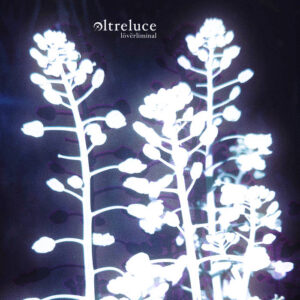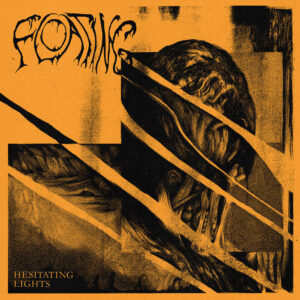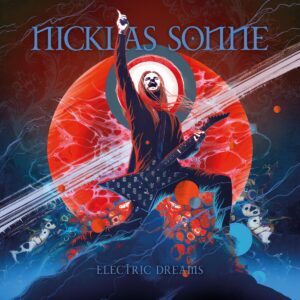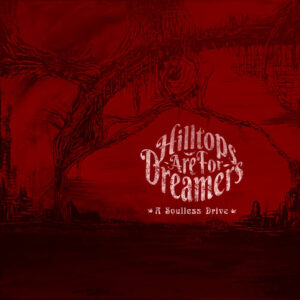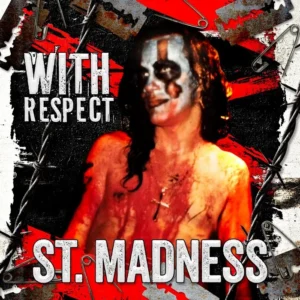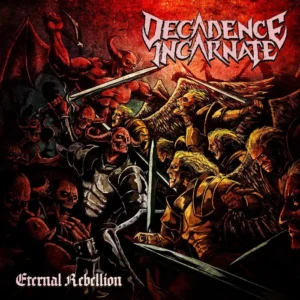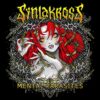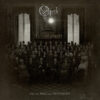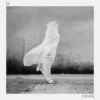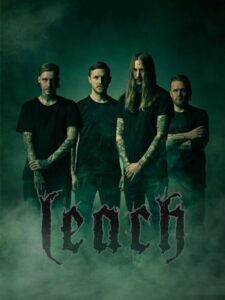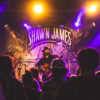Nate Tyson
Spellbook
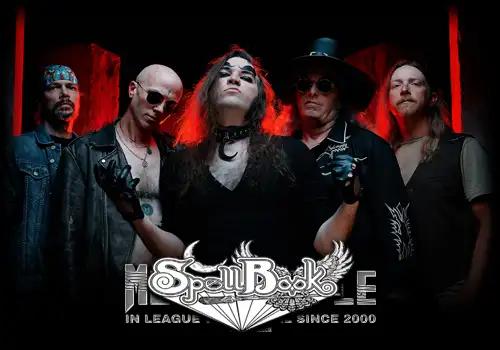
Things are great! This is by far the busiest we have ever been. We have been floored by the response Deadly Charms has been getting. It feels like word is really starting to spread about SpellBook. It's an exciting time!
Well, after recording 'Magick & Mischief' our then guitar player Andy Craven stepped away from the band. So in a weird way, the world being shut down worked out well for us. It gave us time to rebuild the band and immediately start working on the next album. And even though we didn't get a chance to tour in support of 'Magick & Mischief', we still managed to sell a ton of CDs and completely sell out of vinyl. Our label, Cruz Del Sur Music, was very happy with the albums performance and so were we. 'Magick & Mischief' was a great success in spite of the pandemic and it's looking like 'Deadly Charms' is going to do even better.
We tried to keep the buzz going by creating our YouTube channel. Instead of playing live we would put out goofy videos that promoted the album on a somewhat weekly basis. I don't think the buzz was wasted, in many ways people wanted to go out of their way to support bands during that time. Thanks to platforms like bandcamp we did very well with album sales and consider 'Magick & Mischief' a great success.
It wasn't awkward at all really. The addition of Pat and Les brought with them a huge wave of riffs and material. So we started 2 Facebook messenger group chats. One for communication and one called "The Riff Box", where everyone would send riffs and song ideas. By the time we began having in person rehearsals more than half the album was already written.
The Riff Box was a necessity due to the influx of material we had. Instead of sharing a riff in our regular group chat and it being lost after a few days due to constant back and forth talking, we now had a designated space for all musical material. It made it much easier to find and access ideas. We still use The Riff Box to this day.
We were still known as Witch Hazel when the material for 'Magick & Mischief' was written and recorded. So 'Deadly Charms' was the first time going into making an album under the name SpellBook. So I really wanted to lean into the SpellBook name this time around. I already knew I wanted this album to have a darker aesthetic so I jumped head first into themes dealing with horror, especially witchcraft. Films like Alucarda, The Blood On Satan's Paw, The Blair Witch Project, The Autopsy of Jane Doe, The Lords of Salem and Satanico Pandemonium served as good inspiration for a lot of the lyrics. But 2 songs in particular deal with our local history with witchcraft. That being 'Rehmeyer's Hollow' and 'The Witch of Ridley Creek'. The Witch of Ridley Creek is about the trial involving the alleged "witch" of Ridley Creek Margaret Mattson.
The trial took place in the late XVII century almost a decade before Salem's infamous witch hunt. Margaret was accused by her neighbours of practicing witchcraft, casting a curse over their animals and drying their land. The truth was that Margaret occupied first the best part of the land which was much more fertile. At the end of the trial no evidence was found of Margaret practicing witchery and she was condemned to a light sentence.
The other track dealing with our local witch history is 'Rehmeyer's Hollow', the true crime story involving local witch doctor Nelson Rehmeyer who was murdered by John Blymire in 1928. Blymire believed he had a hex placed on him by Rehmeyer and was instructed to steal the spell book that had cursed him. The night ended in blood as Blymire set flame to the local folk healers house. We highly recommend watching the documentary 'Hex Hollow - Witchcraft And Murder In Pennsylvania' for those interested in this story. The horror themes continue throughout the album dealing with witches, vampires, demonic possession, but one song that deals with a different kind of horror is the title track 'Deadly Charms'. This one is about all the people I have lost to heroin addiction which is more than I care to count.
If there are hints of what has been going on in our current society, it is not by design. You are correct when you say escapism is the name of the game. Anyone is welcome to read into our lyrics and interpret them to mean whatever they need them to mean but we try to provide an outlet for the imagination not social commentary.
We were in talks with David to do the artwork for 'Magick & Mischief' but scheduling got in the way and we ended up going with Chad Keith who knocked it out of the park! So I knew I wanted to work with David way back then because I was such a huge fan of his work. I discovered him from his work with dungeon synth godfather Mortiis. I looked David up and seen he was available for commission work and the rest is history. As far as the cover concept we always try to play to the artist's strengths. We get the best results this way. In the case of David, we wanted witches, trolls, goblins and devils spewing out of an open spell book. David replied with, "I can do that!". It truly is a beautiful looking album. We highly recommend you get your hands on the vinyl. It's gorgeous!
As much as I love 'Magick & Mischief', it's a bit all over the place musically. From Iron Maiden-esque proto metal to doom to detective noir concept songs. 'Deadly Charms' is a much more focused album. Solid from start to finish. It's the best representation of our sound to date.
We wanted to make a darker/horror themed album with a blend of occult rock and proto metal as the musical backdrop. We also emphasized the hooks on 'Deadly Charms' as priority number one. I describe 'Deadly Charms' like, what if Judas Priest and Scorpions were making radio hits about witches in 1977.
Andy informed us that he would he exiting the band after the recording of 'Magick & Mischief' basically due to not being able to dedicate that time required for being in the band. Andy was starting a family around this time too so his children obviously took priority over SpellBook. We are all still great friends and continue to talk on a daily basis. Andy will always be a part of this band in spirit and whatever success we have we share with him.
With Pat and Les we were finally able to write and rehearse guitar harmonies live instead of taking note "guitar harmony goes here" and figuring it out in the studio. The guitar harmonies were there for the picking so we made good use of them especially in songs like 'Goddess' and 'Out For Blood'. They also entered the band with tons of riffs. I'd say half of the album came from Pat and Les's material.
Going into the studio a second time with Kevin was great. We were already familiar with each other, we know how one other works and he knew the exact sound we were going for. It was pretty effortless really on our end. We just sat back and let Kevin do his thing. I think he captured the greatest drum sound we ever had on 'Deadly Charms'. Going forward I think we will continue to pursue that late 70's sound. It just compliments the material so well.
I came across the story of Margaret Mattson while researching local witchcraft lore. I thought it was a very interesting story that no one seems to have heard about. She was accused of witchery way before the Salem witch trials took place, in fact the first witch trial that ever took place in Pennsylvania was the trial of Margaret Mattson. My favorite part of the story is she was accused of bewitching her neighbours' livestock, causing them to dance and speak. I loved the idea of this Swedish immigrant woman tormenting these uptight Christian men. We praise her name. Hail Margaret Mattson! The Witch of Ridley Creek!
We knew Goddess was a standout song as soon as it was written. Pat came up with the main riffs and I ran with it. I knew the chorus had to be huge to on the record there are 3 vocal tracks harmonizing together. It's me, Rachel Robison and Matt Suter. They are our unofficial 5th and 6th members of the band. They have been on almost every album we've ever done including the Witch Hazel days. Stay tuned for a lyric video for 'Goddess' to drop early December.
'Deadly Charms' was one of those cases where I came up with the title first before knowing
what the concept was going to be. As I was piecing together the syllables and melodies it hit me, "Oh this song is going to be about addiction and it's going to be a personal song." The first verse is about a child hood friend of mine who grew apart from me as we got older and the second verse is about a musician friend that helped me when I was breaking into the local metal scene in my late teens. Both impacted me at different times in my life. Both died from heroin. So 'Deadly Charms' is the only song that doesn't deal with spooky/horror imagery, it's more of a cautionary tale.
We have a handful of local shows lined up to round out the year. We hope to do an east coast tour of America in the spring/summer of 2023. We are also trying to break into the festival circuit with 'Deadly Charms' both in America and overseas. We are looking into booking agencies at the moment to help us achieve these goals.
Thank you Lior! Cheers!

More results...

